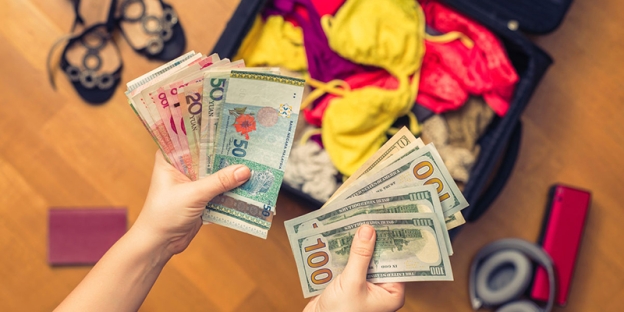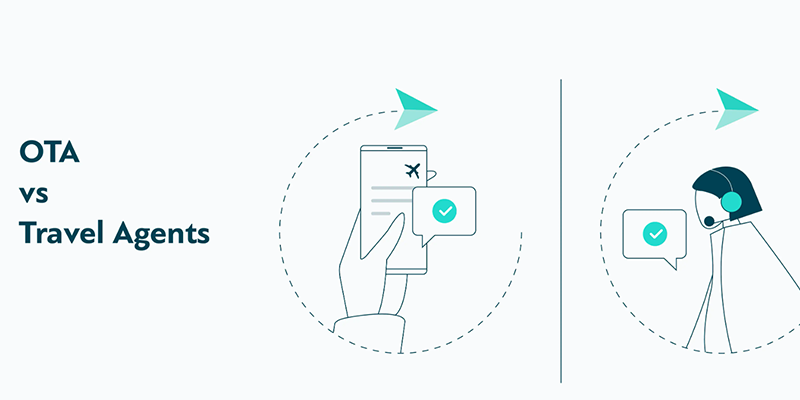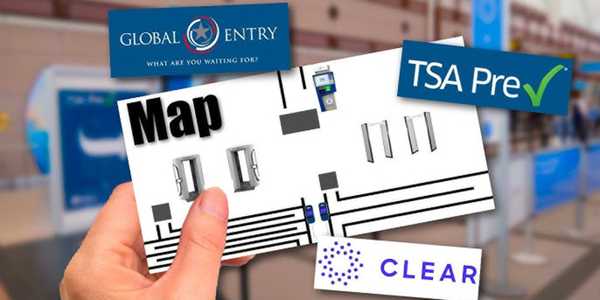Budget Travel: 15 Ways to Save Money Without Living on Instant Noodles
Author:Kassy Brooks
Travelling doesn't always have to burn a hole in your pocket. Some people manage to see the world on tight budgets, while others overspend and miss out on the real fun. The trick is learning how to cut costs smartly while still enjoying the journey. Below are 15 budget travel tips to save money wisely.

Master the Flight Booking Game
Airlines use complex algorithms that adjust prices based on demand, browsing history, and booking patterns. Tuesday afternoons typically offer the lowest airfare prices, while booking 6-8 weeks in advance provides optimal savings for domestic flights.
International flights require booking 2-3 months in advance for the best rates. Visit here to find cheap flights worldwide and book your tickets.
Embrace Alternative Accommodations
Traditional hotels charge premium rates for basic amenities that can be easily replicated at a lower cost through travel hacks. Hostels offer private rooms at a fraction of the cost of hotels, while vacation rentals provide kitchen access, eliminating the need for restaurant dependency.
Travel on a Budget During Shoulder Seasons
Peak season prices can triple accommodation and activity costs, leading to overcrowded experiences that diminish travel enjoyment. Shoulder seasons offer 40- 60% savings with better weather than off-seasons and fewer crowds than peak periods.
Transportation Hacks That Add Up
Public transportation costs significantly less than taxis or ride-sharing services while providing authentic local experiences. Many cities offer tourist transport passes that include multiple days of unlimited travel plus attraction discounts. Walking and cycling not only save money but also lead to unexpected discoveries that vehicle transportation misses entirely.

Food Strategies for Money-Saving Travel
Street food and local markets offer authentic cuisine at prices that make restaurant meals seem absurdly expensive. Markets provide fresh ingredients for self-catering while introducing you to local food culture. Lunch specials typically cost 30-50% less than dinner portions of identical dishes at the same restaurants.
Free Entertainment That Beats Tourist Traps
Most cities offer free walking tours, museum days, outdoor concerts, and cultural events that provide better local insights than expensive tourist attractions. Parks, beaches, hiking trails, and public spaces offer unlimited entertainment without admission fees.
These natural attractions often provide more memorable experiences than manufactured tourist sites.
Affordable Travel Tips for Activities and Excursions
Group discounts apply to most activities and attractions, allowing solo travellers to save by joining other budget-conscious explorers. Many hostels organise group excursions that split costs among participants.
City tourism cards bundle attraction admissions with transportation, creating significant savings for active sightseers. Calculate potential savings against individual ticket prices before purchasing these passes.
Accommodation Location Strategy
Staying slightly outside city centres dramatically reduces accommodation costs while public transportation maintains easy access to main attractions. Suburban locations often provide quieter environments and authentic local neighbourhoods. Airport hotels seem convenient but charge premium rates for basic amenities.
Packing Smart to Avoid Extra Fees
Airlines generate billions in baggage fees from unprepared travellers who exceed weight limits or pack prohibited items. Pack light to avoid checked baggage fees while ensuring essentials fit in carry-on luggage. Versatile clothing items that work in multiple situations reduce packing requirements while maintaining style options. Wrinkle-resistant fabrics eliminate the need for ironing and laundry expenses.
Technology Tools for Budget Success
Price comparison websites and apps reveal significant variations in accommodation, transportation, and activity costs across different booking platforms—set price alerts for flights and accommodations to capitalise on temporary discounts. Currency exchange apps prevent poor exchange rates at airports and tourist areas.
Budget Vacation Ideas for Different Travel Styles
National parks offer affordable outdoor adventures with camping facilities that cost less than a single night in hotels. Many parks provide diverse activities from hiking to wildlife viewing without additional fees. Cultural cities in emerging destinations offer rich experiences at a fraction of the cost of established tourist destinations. Eastern European cities, Southeast Asian capitals, and Central American destinations provide incredible value.
Loyalty Programs That Actually Pay Off
Hotel and airline loyalty programs provide genuine benefits for frequent travellers, including room upgrades, priority boarding, and exclusive discounts. Credit cards with travel rewards accelerate point accumulation through daily spending.
Timing Your Bookings for Maximum Savings
Last-minute deals exist but require flexible schedules and destinations. Apps specialising in same-day hotel bookings offer significant discounts for spontaneous travellers willing to sacrifice planning control. Booking provides better selection and planning opportunities while early-bird discounts reward committed travellers with substantial savings on flights, accommodations, and activities.
Local Knowledge Acquisition
Tourist information centres provide free maps, discount coupons, and insider knowledge about current promotions and events. Local staff offer recommendations that guidebooks miss while helping you avoid tourist markup pricing.
Smart Souvenir Shopping
Local markets and artisan workshops offer authentic souvenirs at prices that make airport and hotel shops seem criminal. Bargaining remains acceptable in many cultures and can reduce prices significantly.
Practical souvenirs like clothing, accessories, or local speciality foods provide ongoing value beyond decorative items that collect dust. Consider weight and customs restrictions when selecting international purchases.
Building Your Budget Travel Mindset
Successful budget travel requires shifting focus from luxury amenities to authentic experiences. Travelling on a budget isn't about cutting joy; it's about finding value in experiences that truly matter. Luxury hotels and pricey meals may look appealing, but they rarely create the best memories. Real stories come from exploring culture, meeting locals, and discovering hidden gems.
Latest News

Airline Direct Vs. Online Travel Agency (OTA) - Where To Save Big
November 24, 2025

Fun And Affordable Weekend Trip Ideas You'll Love
September 29, 2025

7 Best Last-Minute Romantic Getaways You Can Book Right Now
September 19, 2025

12 Best Solo Travel Destinations For 2026 (Plus Safety Tips)
September 18, 2025

10 Smart Tips for Booking Affordable Family-Friendly Tours Without Sacrificing Fun
August 27, 2025

TSA PreCheck Vs. Clear Vs. Global Entry: Which Airport Fast Track Is Right For You?
August 26, 2025